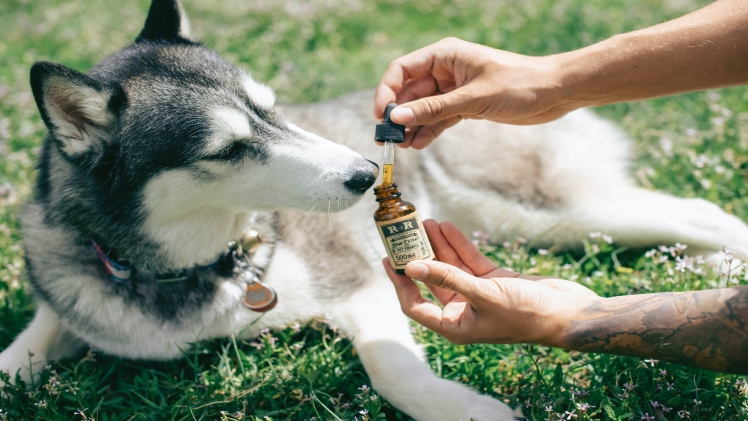Cannabidiol, a cannabinoid found in cannabis, has gained appeal among dog owners in recent years as a pain and anxiety reliever. In addition, some people believe that cannabidiol is a miracle medicine that can be used to treat almost any illness. Even though the CBD industry is replete with misleading claims about its advantages, real study-supported research is emerging that shows great promise for this hemp-derived molecule.
How Cannabidiol Modulates Pain in Dogs
The endocannabinoid system is a network of receptors found in your dog’s brain, nervous system, glands, and organs that work together to regulate his or her behavior (ECS). Scientists are still baffled by the ECS (it was just discovered in 1992), but it is believed to contribute to the body’s general balance via several mechanisms.
Every living creature, including humans, dogs, and cats, has an ECS system that regulates its immune responses. In conjunction with your dog’s CB1 and Cb2 receptors, CBD for dogs has been shown to offer a wide range of health benefits while also functioning as a natural neuroprotective agent in their body. The body and its endocannabinoid receptors can interact with one another because of the cannabinoids included in the oil. This allows the body to control its immune response. To maintain your system in balance, cannabidiol oil is a safe and natural alternative.
Many dogs have low levels of cannabinoids in their bodies, which may explain how cannabidiol may assist control pain. Cannabidiol boosts the number of cannabinoids available in the body while also restoring the balance of the ECS system. While this can be done by using CBD oil, your dog may well dislike the earthy, often unpleasant taste of this. As an alternative, it may be worth experimenting with CBD capsules, which are tasteless and contain high quality CBD oil.
How can cannabidiol (CBD) aid in the treatment of anxiety?
If the owner is using other treatments in addition to CBD, the effectiveness of the cannabidiol will be determined by the severity of the anxiety problem and other therapies being utilized by the owner.
It is possible to categorize dog anxiety into three types:
● Separation Anxiety:

Extreme connection to their owners (usually one person) that produces fear and destructive behavior when removed from their owners for any time. Owners have a strong emotional connection to them (usually one person). Separation anxiety affects about 14% of dogs, according to some estimates.
● Phobia and Trauma:
When it comes to dogs, people, places, and events often have a negative effect on their behavior. Even though some people have frequent and heightened reactions to triggers, this may have an effect on their daily lives (for example, too loud noises). In addition, dogs that have had several different owners in the past are more prone to develop phobias and trauma.
● General Anxiety:
Age-related decline in cognitive function is more common in senior dogs, and this can result in increased stress as a result of memorizing things and being confused.
Cannabidiol, according to dog owners and experts, may be a useful therapy for separation anxiety since it helps dogs relax and become less reactive to stimuli while also being more receptive to new routines and training techniques.
However, although this does not mean that CBD is a cure-all, it suggests that dog owners who supplement their dogs with cannabidiol are more likely to succeed with crate training and other training methods than other owners.
CBD may be beneficial for dogs that suffer from phobias or anxiety since it calms them down and helps them feel more comfortable in their environment.
Conclusion
Safety is the most important consideration when deciding whether or not to put your dog on a cannabidiol regimen. Both you and your dog’s safety are at stake. Despite the absence of sufficient research, there is reason to believe that cannabidiol may help treat several canine illnesses at the same time.
It’s possible that using CBD oil to calm your dog’s anxiety may also help alleviate other problems you weren’t aware of. These include arthritic pain, eating disorders, and even glaucoma.

